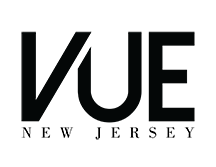Photos by Chris Orange
Nic Roldan has been dubbed the David Beckham of polo, the modern day Mr. Darcy and was once ranked amongst Town & Country’s Top 50 Bachelors of the Year. Let us not forget, however, the man is an athlete first and one of the top professionals in his field, at that. Sure he’s been photographed on holiday in the Hamptons, hanging with the British royal family and even once appeared alongside the Kardashians on an episode of their E! Network television show, but polo isn’t all socialites in flouncy hats and collared shirts. Although it can be, Roldan told me when we spoke.
His current mission as reigning captain of the US Polo Team, aside from reaching an ambitious 10-goal handicap, is to demystify the sport here in the States and bring its popularity to the masses. As someone who comes from a long lineage of polo professionals, you could say that the sport comes quite naturally to Roldan, or at the very least, runs through his veins.
 Born in Argentina, Roldan is a fourth-generation polo player whose father once played for the Sultan of Brunei. A few years after Roldan was born, his family moved to a polo farm in Wellington, Florida where by age 3, he was riding horses with his father and by age 5, was learning the beloved pastime. It wasn’t long until Roldan earned the title as the youngest player in history to win the US Polo Open title at 15, and now, at 35, he’s focused on making polo more accessible.
Born in Argentina, Roldan is a fourth-generation polo player whose father once played for the Sultan of Brunei. A few years after Roldan was born, his family moved to a polo farm in Wellington, Florida where by age 3, he was riding horses with his father and by age 5, was learning the beloved pastime. It wasn’t long until Roldan earned the title as the youngest player in history to win the US Polo Open title at 15, and now, at 35, he’s focused on making polo more accessible.
Through numerous philanthropic efforts and brand ambassador opportunities, Roldan hopes his passion for the sport extends to audiences across the globe. I recently had the chance to speak with Roldan before he headed off to Argentina where he’ll compete in the prestigious Argentine Open. Roldan will be the only American to play at such an advanced level since 2011.
Growing up, did you always know you wanted to be a polo player? What type of influence did your family have on you?
I’m a fourth-generation polo player so while I wasn’t forced into playing polo, I sort of fell into it. I grew up in that culture, riding horses on a farm. My father’s a polo player still. I was kind of molded into that life but at the same time, I never felt like I was forced to play. I played a lot of other sports like golf, tennis and soccer. That was always my life. Then I had the opportunity to play in the US Open, which is one of the most important tournaments in the world, at the young age of 15 and we ended up winning it. That’s what sort of kick-started my career into playing polo professionally.
Did winning the US Polo Open at 15 add any pressure going forward in your career?
I didn’t really feel any of the pressures back then because I was so young. For me, I was just having fun and it’s what came natural to me. I was living my dream, playing a sport that I loved—that my family loved. I was having a lot of fun and working hard to improve every day. I had to grow up fast, obviously, playing with some of the best polo players in the world, traveling alone. It was a pretty amazing experience.
How has polo changed over the years since you first started playing? What do you wish more people in the US knew about the sport?
Since then, I think it’s become way more professional. It’s a lot more intense, a lot faster. Like all sports, the athletes get fitter. The horses get fitter, the quality of the horses gets better—everything improves dramatically over time.
I think for the most part, the largest mission in polo right now is education. Most people don’t even know about the sport, how it works, how intense it is and the amount of training, the amount of hours and dedication that goes into competing at the top level. It’s 24 hours a day, 7 days a week. We don’t have any days off. The preparation of the horses is like preparing myself for a marathon. There are special diets, special training programs—there’s a lot that goes into polo. It’s not just showing up on a Sunday afternoon in the Hamptons drinking champagne.
At the same time, there are different levels of interaction. Anyone, if they have a passion for horses, can play polo. There are academies all over the United States that are affordable and accessible. It’s a sport for all ages, men and women, which I think is pretty cool. It’s a great family sport, too.
Do you think that polo has the potential to one day become a household sport in America?
It’s tough, I’ve been trying for years to change the way people perceive polo. And it’s not just me, people like Nacho Figueras and other big ambassadors of the sport are too. But it’s difficult because at the end of the day, polo is very much an elitist sport and I think really any equestrian sport is elite. Whether you’re jumping, riding or racing horses—the reason horse racing is so big is because they have gambling. I don’t think that we will never open up to the level of baseball or basketball, but if you look at sports like golf and tennis, they started out really small and have grown in the past 20 or 30 years thanks to guys like Tiger Woods. I have high expectations so we’ll have to wait and see.
Some consider polo more of a lifestyle than a sport, and a luxurious one at that. Would you agree and can you tell me why people might see it that way?
I agree and I disagree. Yes, polo is a sport played in some of the most beautiful places around the world and at the best time of year to be there. It is indeed played by many royal families and attracts high net-worth individuals and brands as personified in “Pretty Women,” for example. However, there is also another side of it. Many of the top professionals in our sport grew up in middle class families and have started from the bottom and rose to the top. They followed their dreams, worked really hard and got to where they are because of persistence, dedication and passion. To answer your question, polo does has a lavish side. But it also has a side which most people don’t realize—that most people don’t see and understand. 90 percent of polo games you can go to free of charge or at very little cost and turn up in your jeans and T-shirt for a tailgate. I would encourage your readers to go out and watch a game, it’s also super family-friendly.
In the past, you’ve been linked to fellow equestrian Jessica Springsteen. Did the two of you ever spend time together in New Jersey?
Yeah, I mean, I used to when I was dating her. I loved Jersey though, it’s a beautiful place.
In July, you captained the US Polo Team in the Westchester Cup against England. This month, you’ll be heading off to Argentina to compete in the Argentine Open. Do you feel as if you’re helping put the US on the world polo map?
Yeah, 100 percent. I’ve been a huge advocate and ambassador for the sport for awhile and I feel like that’s my duty because I’m so passionate and believe in it. Playing in the Westchester Cup was a huge honor and being able to captain that was something I strived to do.
In Argentina, there are no other Americans playing there so I feel like I’m kind of paving the way. Playing in the Argentine Open is at the epicenter of polo. All the best players are competing and it’s the biggest polo tournament in the world.
What’s your training regimen like?
It depends on certain times of the year but when it’s the off season I’m training a lot. Polo players all have different regimens depending on the person but it usually doesn’t involve a lot of weights, it’s more cross-training, stretching, yoga and core. During the season, it’s about maintenance so we’re focusing on endurance. I’d say it’s similar to a soccer or tennis player. You need to be lean, flexible and have good cardio because you’re out there for two hours.
How many different horses do you work with? Own?
I’ve got about 30 horses worldwide. I have a set of horses in Europe, in the United States and I’m working on having a set in Argentina. Sometimes a few of them travel overseas but for the most part they stay in their countries. I’ve been riding horses my whole life so for me, getting on a new horse doesn’t really affect me and I think other players would say the same. As a top professional, you have to create a bond and a relationship with each horse. Each one reacts in different ways or moves in different ways, some have more power than others. You have to be able to manage them really well and adjust to each horse differently.
Apart from polo, you’re also very involved in philanthropy. How did those relationships come about?
It’s something that’s been really important to me throughout my career. I’ve tried to use my name and my contacts as much as possible to raise money for charities closest to me. I’ve worked with kids who have cancer and I’ve also worked a lot with a charity called Brooke USA which is an animal welfare organization. I try to do as much as possible. I created my own event called Sunset Polo which I’ve hosted a couple times in Palm Beach and England. I usually try to do events in the places that I’m traveling to. For Brooke, we’ve raised over a million dollars and that’s just in the past few years. I feel as if it’s important to me and to the sport as well.
You were also named the global ambassador for Cowdray Estate in the UK. What is your connection to the Estate and what opportunities does this role present?
I started the relationship with them about three years ago when I was playing in England. I was based in Cowdray and created a great bond with the family. I proposed a couple ideas that I thought would be helpful to them and for me and they loved it. They took me on as global ambassador last year and I’m just trying to promote the beautiful estate that it is. It’s an amazing property. They host weddings, corporate events and I’ve even hosted a couple charity events there. They’re an amazing family, huge advocates of the sport of polo and I think that with both of our connections we can be really helpful to each other—it’s a great partnership.
What’s your way of taking time for yourself, away from the sport?
I really love golf and being outdoors. Right now, I’ve been in Aspen for about a month and a half, so I’ve been hiking and biking. I try to stay as active as possible. I also enjoy just chilling out, relaxing at the bar and being at home hanging out with my family.
Connect with Nic Roldan at nicroldan.com or on social media @nicroldan.
MORE Lifestyle STORIES
Get an inside vue on the latest in luxury. You heard it here first.








